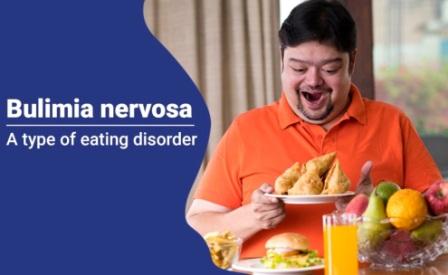
Bulimia Nervosa:
It is a serious mental health condition characterized by cycles of binge eating followed by compensatory behaviors, such as self-induced vomiting, excessive exercise, or misuse of laxatives or diuretics. This disorder not only impacts physical health but also takes a toll on emotional well-being and interpersonal relationships. Understanding bulimia nervosa is crucial for recognizing its signs, seeking appropriate treatment, and supporting recovery.
What is Bulimia Nervosa?
Bulimia nervosa involves episodes of uncontrollable binge eating, during which individuals consume large quantities of food in a short period while feeling a loss of control. These episodes are followed by behaviors to compensate for the binge, such as self-induced vomiting, fasting, or excessive exercise. Unlike anorexia nervosa, individuals with bulimia may maintain a relatively normal weight, making the disorder less apparent.
Signs and Symptoms:
Recognizing the signs and symptoms of bulimia nervosa is essential for early intervention. Common signs include recurrent episodes of binge eating, secretive eating habits, frequent trips to the bathroom after meals, self-induced vomiting, use of laxatives or diuretics, and extreme concern with body weight and shape. Physical symptoms may include swollen glands, erosion of tooth enamel, electrolyte imbalances, and gastrointestinal issues.
Risk Factors:
Several factors may increase the risk of developing bulimia nervosa. These include genetic predisposition, family history of eating disorders, psychological factors such as low self-esteem or perfectionism, history of trauma or abuse, societal pressure to attain an ideal body image, and participation in activities that emphasize weight or appearance, such as dance or gymnastics.
Treatment and Recovery:
Treating bulimia nervosa requires a comprehensive approach that addresses both physical and psychological aspects of the disorder. Treatment may include nutritional counseling to establish regular eating patterns, psychotherapy (such as cognitive-behavioral therapy) to address underlying issues and develop healthy coping strategies, medication for co-occurring conditions like depression or anxiety, and support groups to connect with others who understand their experiences.
Supporting Recovery:
Support from family, friends, and healthcare professionals is essential for those recovering from bulimia nervosa. It’s crucial to create a non-judgmental and supportive environment, encourage open communication, and provide encouragement and understanding throughout the recovery process. Emphasizing self-care, self-compassion, and healthy coping mechanisms can help individuals develop a positive relationship with food and their bodies.
Prevention and Education:
Preventing bulimia nervosa involves promoting body positivity, fostering healthy attitudes toward food and exercise, and challenging societal norms that equate thinness with beauty or success. Education about eating disorders, early detection, and intervention are essential in schools, communities, and healthcare settings to raise awareness and reduce stigma.
Conclusion:
Bulimia Nervosa is a complex and challenging eating disorder that requires compassionate and comprehensive care. By increasing awareness, recognizing the signs, and providing timely intervention and support, we can help individuals affected by bulimia nervosa on their journey to recovery and healing. It’s essential to prioritize mental and physical well-being and promote acceptance and understanding of diverse body shapes and sizes.




Be the first to comment